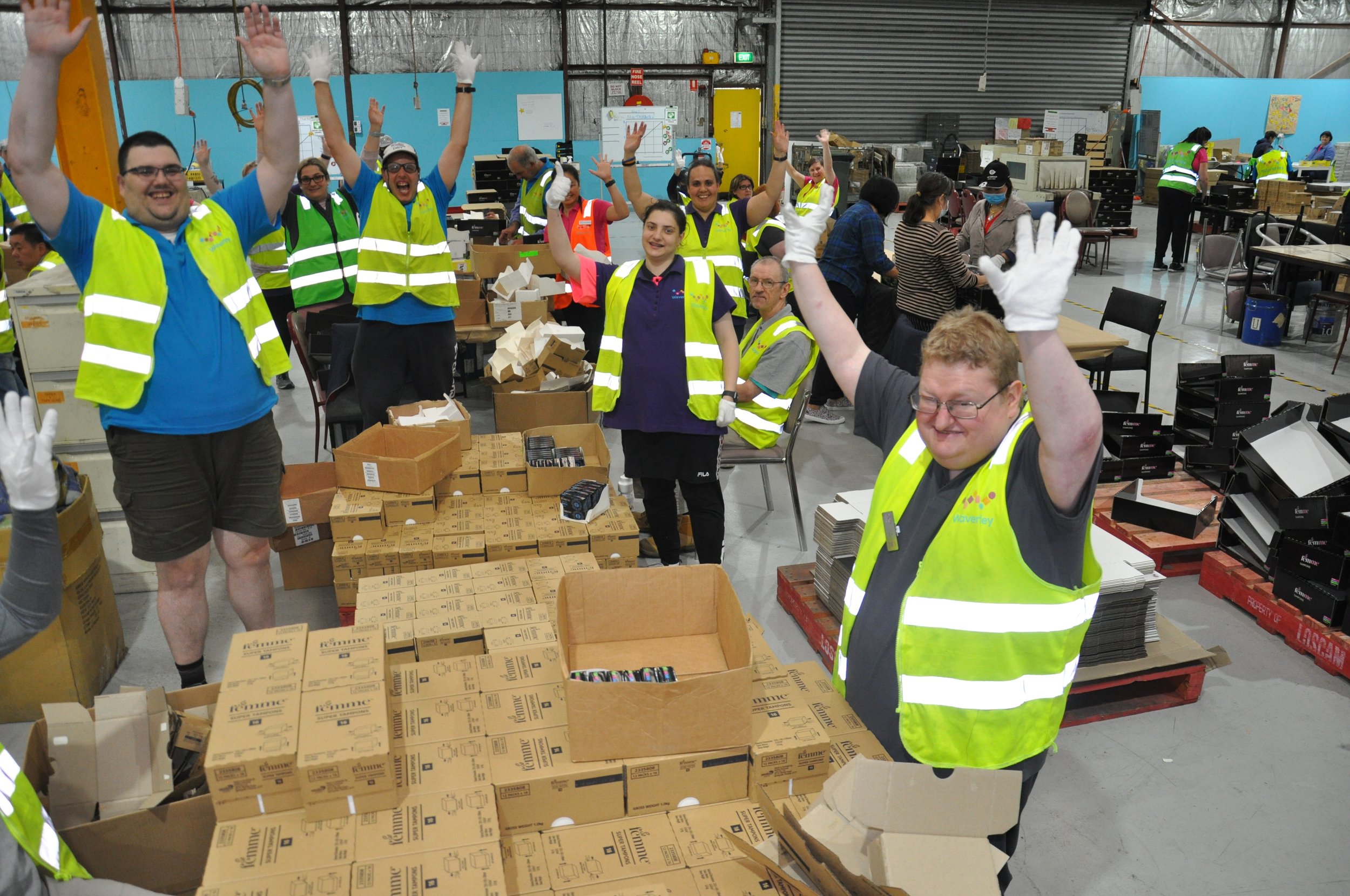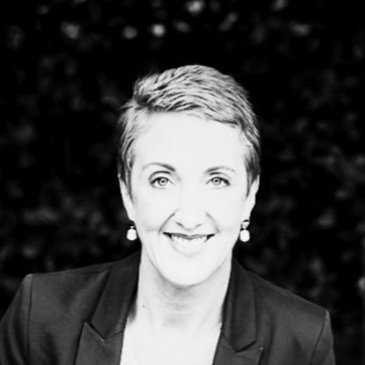Vanessa Steele On Creating Disability Employment Through Profit For Purpose Businesses
Vanessa joined the Waverley Industries Management team in January 2019.
Qualified as a Chartered Accountant in England and Wales, with a Honours degree from a London University. Vanessa has a broad experience spanning three different countries and many financial positions, including Head of Finance for Royal Canin Australia and New Zealand, as well as more recently Supply and Commercial Financial Manager for Mars Petcare.
Vanessa has a passion for working with people with disabilities and enjoys nurturing the culture of caring, developing and delivering great outcomes for our people. Vanessa also has a passion for the development of high performing teams and prides herself on being able to create strong relationships within all areas of the organisation. She unequivocally believes she has the best job working with wonderful people with all abilities.
Vanessa discusses the differences between a profit for purpose business and a not-for-profit and how the concept of disability employment can be revolutionised in the future.
Highlights from the interview (listen to the podcast for full details)
[Indio Myles] - Could you please share a bit about your background and what led to your interest and work in social enterprise?
[Vanessa Steele] - I started my career as an external auditor with PWC working in the UK. I moved over to Australia and continued with PWC for a while and then finally I moved onto Mars Petcare. I suppose after 24 years in a commercial environment, I really wanted to look at something that was a more socially focused organisation. I was reaching that point in my career where it was more about how I could give back rather than just working through a commercial environment. I'm a big believer in lady fate, and this role landed in my inbox, I had a look and popped in for the interview which was perfect.
Could you please tell us a bit more about Waverley Industries and how it is creating a social impact?
We have two sites at Waverley, one in Notting Hill and one in Hallam. We currently employ over 320 adults with disabilities of varying degrees. We have people with various disabilities, including physical, intellectual and mental health issues. What we provide at Waverley is a safe environment for people to come to and feel apart of a community, to feel valued and supported in a safe environment. We don't just offer that safety; we actually offer them social and financial independence as well. It's really important to these guys to feel like they are valued. If I reflect over COVID. I think the most important thing for our participants through COVID was to really continue to come to work. They needed that routine, they needed to maintain social contact, and they needed to be valued and needed. The fact that they could walk away and share with friends and family that they were an essential worker become such a point of pride. We don't just offer employment; we also offer capability building.
One of our visions is to bring people who have limited ability into the organisation and build their capability to the point where they are capable of going out and getting a job in what we call 'open employment'.
We have a large focus in our organisation on capability building. Like in any organisation, you would have a personal development plan for your employees. We have the same for our participants. Each year, we sit down and work out exactly what capabilities they would like to build within themselves, and we try and structure a training program to make sure that they actually achieve those capabilities. It just gives them a skillset and working towards either open employment or progression within our organisation in a safe environment. I will just add very quickly that in our catering department, we've actually put through participants right through their training to become qualified chefs. We're very lucky to have just had one pass through, and we are certainly looking for our next trainee to join the program.
How do you address the problem of accessibility to employment for Australians of all ranges of abilities?
We as an organisation are really focused on how we provide that support and that employment. If you look at the NDIS strategy and vision, the aim is to have any adult with a disability or special needs in employment. Basically, this means anybody who is capable of being in employment can be in employment. The last numbers I heard were that there are 110,000 adults, with special needs that were capable of working in employment, and yet we employ across Australia about 50,000. You can see that there is still a gap of at least 50,000 people that are capable of working in employment. We implement what maybe you would use the old-fashioned word of a 'sheltered workshop', it's not a term that we use these days. We have a factory with production teams of people that support each other as a team and do co-packing, environmental gardening, assembly work et cetera.
Our vision, and I think our sector's vision is really to provide the capabilities and then to work with organisations to try and move some of these guys into open employment and to start providing them with training and education around how to work with people.
There is a limit to the number of people that we can employ, but it's limitless if we can get into larger organisations that have the patience and culture that would accept these guys. There's a lot of untapped skills.
What opportunities have you observed more broadly for social entrepreneurs to get on top of their finances and ensure they're set up for success?
I often describe the finance for a not-for-profit organisation as one of those little cartoon characters who balances spinning plates on two hands, a head and a foot! It really is a combination of trying to see yourself as a social enterprise yet trying to consider yourself as a commercial organisation as well. I would strongly encourage any organisation, any not-for-profit organisation to change their language.
You do need to make a profit, it's not a not for profit, it is really a profit for purpose organisation. You have to be able to make that surplus to be able to reinvest in the business.
That challenge is alive and well, trying to work with government organisations on funding, getting customers and balancing all of those variables can be very difficult. We are a not-for-profit organisation that employs adults with disabilities, so we are what we call an ADE, an Australian Disabled Enterprise, so we have employment as part of our funding. What's really important is that when we look at our customer base, we look at partnerships rather than somebody who's out there looking for a cheap job, because that's not what we are as an organisation. A lot of ADE's are really highly qualified in terms of quality. We are not here to provide cheap employment, we're here to provide a partnership with organisations. My recommendation to anybody in this field and sector, especially if they're trying to play in between government, customers and participants is to make sure you're looking at partnerships and at an organisation from a commercialised perspective. Additionally, changing that language to 'profit for purpose' rather than just a not-for-profit is vital.
Where do you see opportunities for impact-led entrepreneurs to address employment inequalities on a global scale?
I think the opportunity is around society starting to accept differences, and it really is about baby steps in terms of educating people on how to work with people that have different abilities. I suppose it's really about not-for-profits or social enterprises working with other industries to build that understanding, education and then to pull out the strengths from these individuals. I'm going to use an example of a high-performing autistic individual. They can't operate in an environment where people are not understanding of the way they interact. Yet, they could be highly technical, analytical and provide incredible an output if you worked within their scope or realm of understanding. It just takes a little bit of patience and understanding to be able to get the best out of that individual.
I think it's a journey that Australia but also that the globe needs to start, the journey of this educational process, finding the patience and understanding these individuals that have a limited ability.
It doesn't mean that they are incapable of contributing to society, it just means that they need somebody to help them to contribute more effectively.
What other organisations have you seen that are creating a strong social impact?
I suppose our network is Victorian based, and I have to say I've seen some invaluable work from Knoxbrooke, who have fantastic partnerships with large infrastructure organisations and government. I look at Able Australia regularly, and they have an incredible CEO in Kate McCray who is such an advocate for our industry and for more broadly NDIS participants. There's a beautiful organisation called Solve, and they are really interesting. We went and did catering for them, and we didn't know what they did. What they do is somebody comes to them with a gap or an issue, and they have engineers who are retired volunteers that literally solve the issue for the individual to provide them with more independence and dignity. There's so many organisations out there, everybody does a fantastic job.
Are there any books or resources that you would recommend to our audience?
I had to think about this question, because I'm not a natural reader. But what I do like most people these days is use technology. I read through social media regularly, and there is a book called The Networked Non-profit by Beth Kanter, and it's really about the not-for-profits connecting with social media to drive change, and I think that's important. With the way that we educate people, a lot of it is through word of mouth and social media these days, so truly understanding the impact that you can have through social media is crucial. If I was to encourage anyone, I would say go into all of your various accounts on Instagram, LinkedIn, Facebook and Twitter and earmark not-for-profit organisations. You see a lot of really good discussions that go on there with people sharing with other people, advocating and just learning. I get a lot of information through my LinkedIn profile, and it contains really useful quick articles if you haven't got the time to sit down with a big book. I don't really have a book to recommend, but I wanted to give you my take on that rather than just telling people what book they should read. There is certainly a lot to gain on social media, and I'd highly encourage people just to mark it as an interest of theirs and learn from that.









